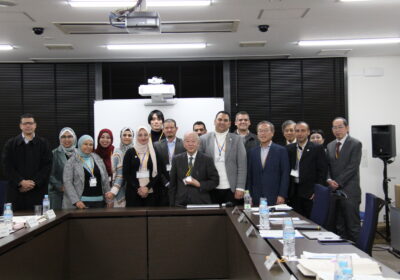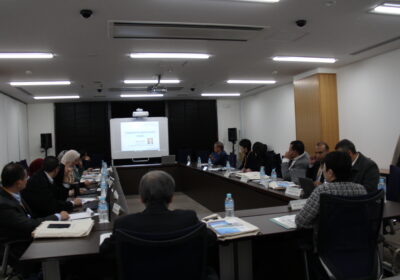Consortium for Training Experts in Statistical Sciences
About the Consortium for Training Experts in Statistical Sciences
The Institute of Statistical Mathematics (ISM) has established the Consortium for Training Experts in Statistical Sciences in collaboration with universities and other organisations throughout Japan. The institute is working to develop a statistical faculty in the field of data science, which is in shorter supply in Japan than other countries. The inaugural meeting of the consortium was held on Tuesday, August 31, 2021.
The Consortium for Training Experts in Statistical Sciences comprises the Institute of Statistical Mathematics of the Research Organization of Information and Systems (hereinafter referred to as “ISM”; Location: Tachikawa City, Tokyo, Director-General: Hiroe Tsubaki) as its core institution; departments and institutes from 21 universities as its participating institutions; and five universities that will cooperate in the project as its cooperating institutions. The consortium serves as the basis for promoting the Project for Training Experts in Statistical Sciences, which promotes the training and development of statistics professors and experts in statistical sciences, primarily through graduate school education.
Through the activities of the consortium as well as the human resource development at each university to which these university statistics professors will belong, we aim to develop at least 30 university statistics professors*1 in the next five years and approximately 500 experts in statistical sciences*2 in the next ten years.
- *1. Human resources holding a doctoral degree in their respective fields of specialisation and having advanced knowledge and skills in the field of statistics, who are capable of delivering lectures on statistics at the master’s level and supervising research utilising statistics.
- *2. Human resources who can contribute to academic research and industry by utilising statistics. The participating institutions (e.g., universities) in this project will train and develop experts in statistical sciences at the master’s level.
Background for the Development of Statistical Experts
To utilise data in the post-COVID society, human resources capable of analysing a massive amount of data using statistical methods are essential. In addition, among other requirements, there is an increasing demand for real-time big data analysis, which cannot be addressed without sufficient grounding in statistics.
Although other countries have already established educational systems to develop human resources specialising in the field of data science, Japan has only started its efforts. In particular, there is a serious shortage of specialised professors in the field of statistics at universities. Thus, the training of several high-quality, specialised professors is an urgent issue (as of 2019, there were 177 universities with departments of statistics in the United States, and only five universities with departments of statistics in Japan).
To respond to this exigency, it is necessary to promote research in interdisciplinary fields, using statistics that contribute to innovations in big data and artificial intelligence, which are essential for achieving Society 5.0. In addition, it is necessary to establish a system (ecosystem for training experts in statistical sciences) in which trained expert human resources (university statistics professors) play a central role at universities and in other settings to develop and disseminate education and research activities related to statistics and interdisciplinary fields.
To this end, the Basic Policy for Economic and Fiscal Management and Reform 2020 (approved by the Cabinet on 17 July 2020) states that the government should “develop a system for the early training of specialist professors in data science education and statistics.” Thus, the Ministry of Education, Culture, Sports, Science and Technology (MEXT) has established a public recruitment project, “FY2021 Project for Training Experts in Statistical Sciences” (FY2021 Grant-in-Aid Project for Research Hubs for the Social Implementation of Artificial Intelligence and Other Related Technologies).
In collaboration with universities and other organisations throughout Japan, ISM has prepared to establish a consortium and have applied for this project, which was accepted on 22 June 2021.
Outline of the Project for Training Experts in Statistical Sciences
ISM, as the core institution, will conduct three two-year “Statistics Professors Training Programs,” during the five-year project period to train young researchers (e.g., assistant professors and post-doctoral fellows) in various academic fields to become university faculty members, who can provide the latest statistical education and statistical research guidance. ISM will also develop and provide a system for training experts in statistical sciences to produce master-level experts in statistical sciences.
Participating universities and other institutions will send young researchers to this training program. In addition, with the support of the core institutions and in collaboration with the young researchers concerned, a system to foster experts in statistical sciences within the participating institutions will be established and operated.
Through these efforts, over the next five years, the consortium aims to train at least 30 university statistics professors to teach statistics and approximately 500 experts in statistical sciences over the next ten years (including the next five years), at each university to which these university statistics professors would belong.
Framework for Training Experts in Statistical Sciences
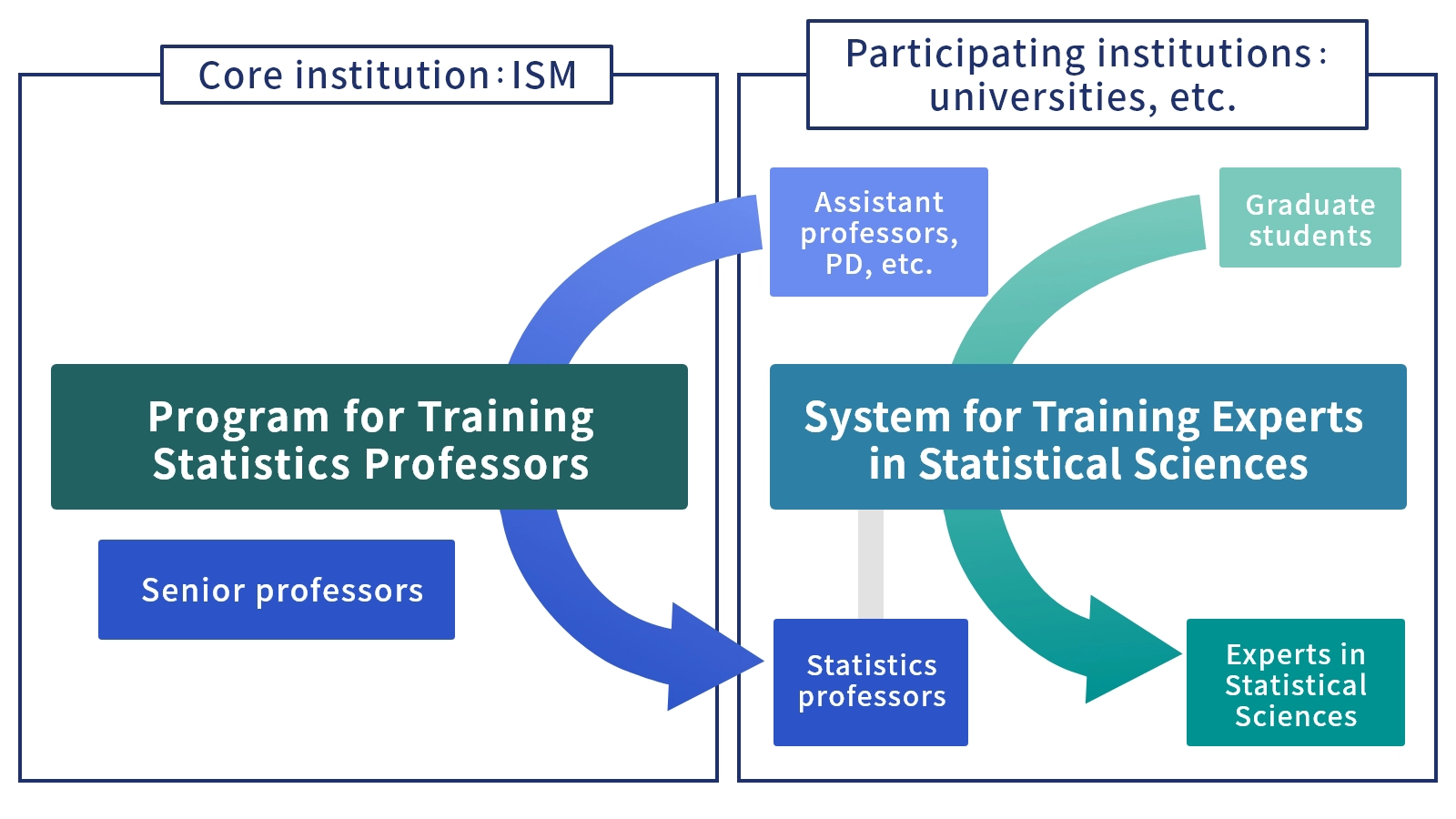
Self-inspection of the Consortium
Self-inspection is intended to improve the quality of Consortium activities by self-inspection of the Consortium for Training Experts in Statistical Sciences activity status centered on the initial project period (July 2021 to September 2022). They will also be reflected on the future initiatives, such as the second-term program for training statistics professors (April 2023) and consortium management. This will contribute to examining measures for the smooth and effective achievement of the objectives of the Consortium.
11 statisticians from CAPMAS, Government of Egypt visited ISM
Eleven statisticians from the Central Agency for Public Mobilization and Statistics (CAPMAS), Government of Egypt, along with three coordinators from the Statistics Bureau of Japan and the Japan International Cooperation Agency (JICA), visited the Institute of Statistical Mathematics (ISM) as part of JICA’s Country-Focused Training Program on December 10, 2024. This visit, which followed their initial visit to the Center for Training Professors in Statistics at ISM on May 25, 2023, marked their second interaction with the institute. The training program, conducted in English, was facilitated by Prof. Kamatani, Director of the International Affairs Office.
The program began with a lecture by Prof. Tsubaki, Director-General of ISM, titled “Overview of the Institute of Statistical Mathematics and Statistical Science.” This was followed by a facility tour, during which Prof. Kuriki introduced the School of Statistical Thinking. After a lunch break, the trainees attended a lecture on “Register-Based Population Census” presented by Prof. Chino, Director of the Center for Training Professors in Statistics. Subsequently, Prof. Ueno, Director of the Center for Engineering and Technical Support, provided an introduction to the institute’s supercomputer systems and library. The trainees also visited the Polar Science Museum at the National Institute of Polar Research.
Having reviewed the provided materials in advance, the trainees actively participated in the lectures and discussions. Their relaxed and smiling expressions during the program reflected both their enthusiasm and enjoyment. Despite the limited time, the visit offered a productive and enriching experience for all involved.
(December 10, 2024)
Greetings from a Representative of the Core Institution of the Consortium
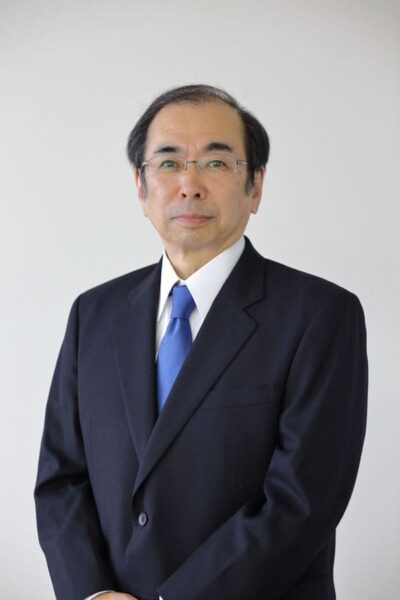
The development and promotion of data science drives scientific and technological innovation in this era of big data and data science. Statistics, which form the core of data science, are indispensable both for academia and the development of society and problem resolution.
Nonetheless, the number of educational institutions with statistics-related faculties in Japan is considerably smaller than that in other countries, such as the United States and China; further, Japan has a delayed development of statistical personnel. The Sixth Basic Plan for Science, Technology, and Innovation states the need for “the early development of a system for training specialist professors of statistics,” indicating that the development of statistical personnel is an urgent national issue.
In response to this demand, the consortium aims to rapidly develop experts in statistical sciences, particularly university statistics professors, with guaranteed quality. Specifically, the consortium aims to develop at least 30 university statistics professors in the next five years, who will form the core of the consortium at universities nationwide to develop approximately 500 master’s level statistics experts over ten years.
If this goal is realised, statistics human resources would be developed on the scale required in Japan in the age of data science, which will considerably contribute to academic progress and the acceleration of social and economic development of Japan.
Thus, we ask for your support and cooperation in building a system to foster statistical personnel and implement a cyclic human resource development program to considerably accelerate the development of the required skilled statistics personnel.
Research Organization of Information and Systems of Inter-University Research Institute Corporation
Ryoichi Fujii, President of ROIS
Feb. 2022
Message from the Director-General of The Institute of Statistical Mathematics
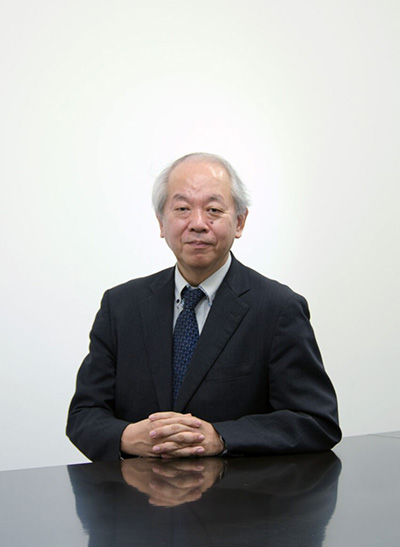
As the marginal costs of data and their analysis are reduced, data-driven business and social activities have rapidly grown, changing people’s lives. Currently, the world is searching for an ideal form of a data-driven society. We live in an era wherein the generation of knowledge and economic value through the core academic discipline of statistical and mathematical sciences has an impact on the evolution of the quantitative disciplines led by researchers and on the progress of socio-economic activities. Thus, there is a strong demand both at nationally and globally for the development of experts with statistical and mathematical skills who can appropriately collect and analyse data and support decision-making.
ISM has promoted three main activities: “deepening the fundamental mathematics of data science,” “building and revitalising the network of statistical and mathematical sciences,” and “fostering human resources with statistical thinking ability”. As an inter-university research institute, our important mission is to form a collaborative network that contributes to the development of data science—a science that focuses on the process of knowledge value generation and its application to society—and to contribute to academia, a data-driven society, and the development of next-generation human resources.
ISM has decided to launch the “Training Professors in Statistical Sciences” program to develop human resources with advanced statistical knowledge and practical skills. Based on the results of the pilot version of the “Data Science Professor Training Program” conducted by the Joint Support-Center for Data Science Research of the Research Organization of Information and Systems (RIOS-DS), and in collaboration with several universities, we will promote this program to meet society’s expectations.
We will continue to develop our research and educational activities to produce and evolve research results in statistics that are useful for the development of society and data science and foster human resources who can make adequate use of them.
Inter-University Research Institute, Research Organization of Information and Systems
Hiroe Tsubaki, Director-General, The Institute of Statistical Mathematics
Feb. 2022


